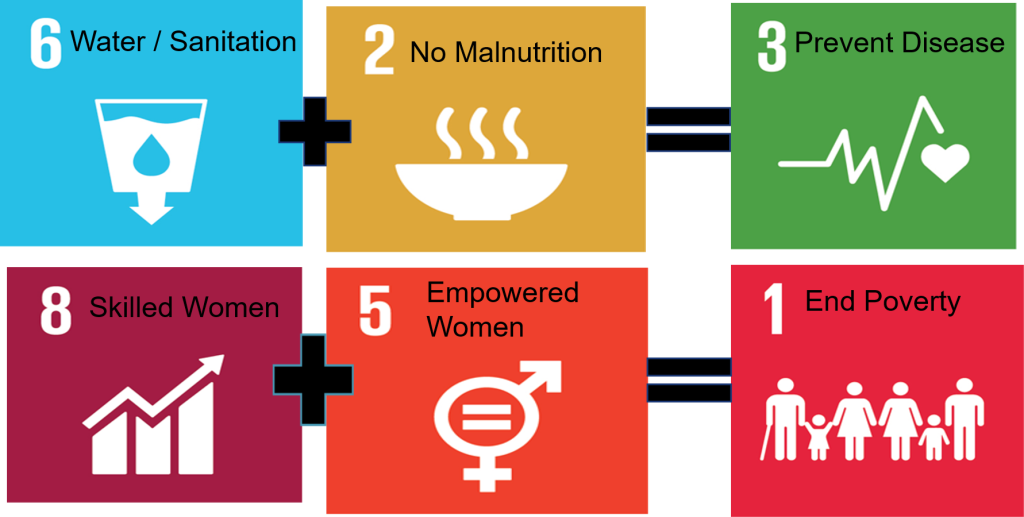Africa AHEAD combined with the World Bank to host a session at the Africa San Conference in Cape Town in March 2019 entitled
Enhancing sanitation and hygiene investments for human development impact in Africa
The Water Global Practice of the World Bank Group has invested heavily in understanding the impact of sanitation and water across various dimensions of human capital, including infant and child mortality and morbidity, maternal health, and education. The session presented by Martin Gambrill presented on these analytical foundations showing evidence that presents a strong case for the role of sanitation for the human capital agenda. The session then highlighted examples of World Bank support for sanitation and hygiene investments as integral to maternal, newborn and child health initiatives in the region, and practical ways that these investments can be enhanced for greater impact.
Africa AHEAD presentation was delivered by Dr. Juliet Waterkeyn entitled:
Hygiene promotion as an entry point for a process of change to address the SDGs through Community Health Clubs
Our objective was to inspire development practitioners and policy makers to build on current sanitation activities by broadening into a more holistic long-term programme across a number of SDG targets using Community Health Clubs as a vehicle for development. This presentation was well received by the audience leading to a number of requests to start CHCs in Honduras and Zambia with CAWST, as well as a possible partnership with World Bank in Ethiopia and/or Nigeria. In addition USAID emergency funds are to be considered for cholera mitigation in Zimbabwe.
The main take way from the AfricaSan Conference for Africa AHEAD was that with the era of SDGs there is renewed interest in the CHC approach, whilst little attention is now being paid to the more narrowly focused approaches such as CLTS, which are considered only a small part of the challenge to address extreme poverty.
With a number of opinion leaders in organisations such as AMCOW, who now understand the value of the CHC approach for integrated development particularly in Africa, we expect a new energy for funding such initiatives.

